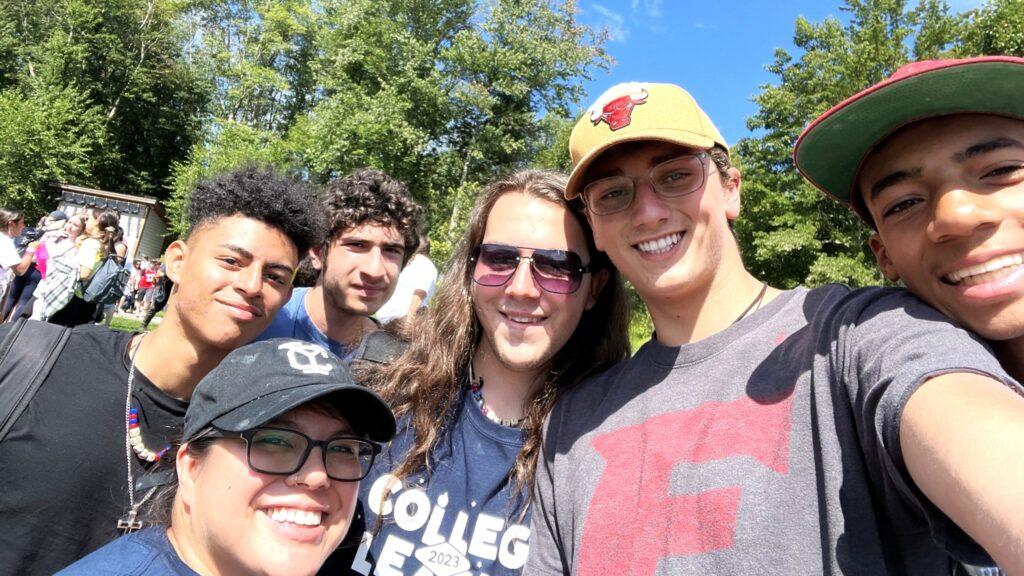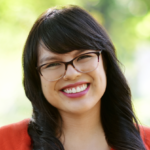[Dedicated to my dad, David Remillard]
As a Grief Specialist for Experience Camps, I feel vulnerable sharing my grief story, as therapists are taught to not disclose about their personal lives. Still, as a therapist who works with grieving adults (and children for a week in the summer), it feels inauthentic to keep my story to myself. If there’s anything from my years of learning about grief personally and professionally, it’s that one of the most comforting things to say in grief is “I grieve too.”
My dad died during my freshman year of college, a time that I was supposed to be starting my new life of adulthood. I felt a similar isolating weirdness: I’m “supposed to” have a dad, I’m only 18 years old.” Leaving him out of discussions with new friends when talking about my family back home didn’t feel right, and yet it was true. I didn’t know if I should say “my dad is…” or “my dad was…” I didn’t want to bring attention to the gaping hole his death left behind.
Fifteen years later, I am now a grief therapist, and here are a couple of things I would have told my 18-year-old self.
Lesson #1: Grief hurts. Find comfort in sharing.
Grief is one of the most painful experiences we go through as humans. It hurts because a person is just gone. They were once full of life and now are dead. It hurts because we may have regrets about what we did or didn’t say, what we did or didn’t do. It hurts because the family system loses an integral part of its functioning, and now has to learn how to function without it. It hurts because our society is so terrible about handling grief, and you only get five bereavement days if you’re lucky.
Grief is isolating. At Experience Camps, where I work with grieving children, the campers often speak about “being the weird kid whose dad died” or how “my friends don’t know what to say.” My adult clients, peers, and I also grapple with these feelings and frustrations.

Shelby (front row) at Experience Camps with Junior Counselors
The healing part of the campers being in community with each other–or the space for adults to share their grief, or the therapy office–is the act of someone (or multiple people) bearing witness to the pain. It helps when tears are shed to have hands placed on shoulders, heads nodding in felt acknowledgement, and people being thanked for sharing. No one says “aren’t you over it?” or “stop crying” or “hey, at least…”
One of the most powerful things a really good friend in college said to me when I was struggling with the verbiage around my dad’s existence was, “it’s ok. Refer to him however you need to right now. There’s no right way to do it.” A huge relief rippled through my body.
Finding your grief community can be one of the most powerful experiences in working through your grief. You deserve to be held and acknowledged in your grief, for your pain to be seen and heard.
Lesson #2: You will miss your person. Create a space where you can find them
It’s natural to miss the person or being who died, no matter the time that’s passed. As you grow further in your grief journey, you may find new and different external factors elicit the “missing you” feeling. In all the grief spaces I’m in, we name important dates that can hurt (death days, birthdays, fathers/mother’s day) as well as important life transitions we wish our people could be a part of (graduations, sports tournaments, weddings).
An important coping skill for grief is continuing to maintain the attachment with the person to keep them close when life continues to go on without them. I’ve had the privilege of hearing so many different ways people maintain closeness including:
- Leaving a seat open for their mom at their wedding
- Eating their dad’s favorite food on Father’s day
- Listening to their brother’s favorite band on his birthday
- Creating a photo altar in their home
My dad loved the outdoors. He was an avid runner, loved to be in the mountains of my home state of Colorado. He was proud of his Native American heritage and growing up in New Mexico. He loved rock and country music, and having a good laugh over a hot cup of coffee. So now, when I get the “missing him” feeling, I connect to him by:
- Listening to the playlist I made of all his favorite songs and bands
- Taking a walk in Central Park on a nice sunny day with a cup of coffee
- Making green chili stew and tortillas (one of his favorite meals)
- Sharing funny memories about him with my family, friends, and fiancé
How you connect with your person or being can be as unique as your relationship. There is no right or wrong way to grieve.
 Shelby Remillard, LMHC is an Indigenous (Laguna Pueblo) and Filipina therapist working and living in NYC. She works with adults in trauma recovery, grief and loss, and building healthy relationships. She is currently leading a BIPOC Adult Grief group open virtually across the United States. This summer will be her 7th year working as a Grief Specialist at Experience Camps – Pennsylvania.
Shelby Remillard, LMHC is an Indigenous (Laguna Pueblo) and Filipina therapist working and living in NYC. She works with adults in trauma recovery, grief and loss, and building healthy relationships. She is currently leading a BIPOC Adult Grief group open virtually across the United States. This summer will be her 7th year working as a Grief Specialist at Experience Camps – Pennsylvania.

This is right on point! Sharing my grief and creating space has greatly helped me grieve the death of my 1-year-old son and 22-year-old stepson.